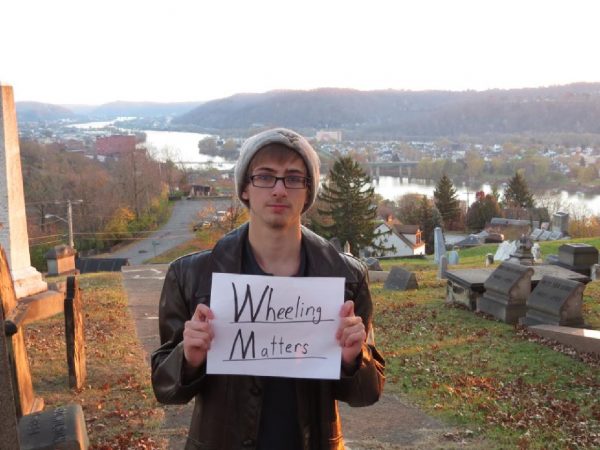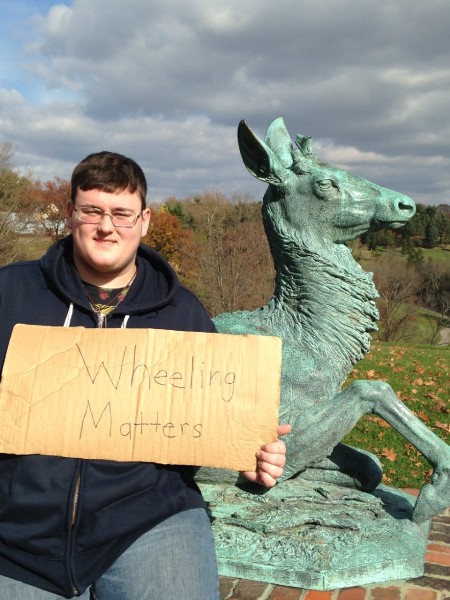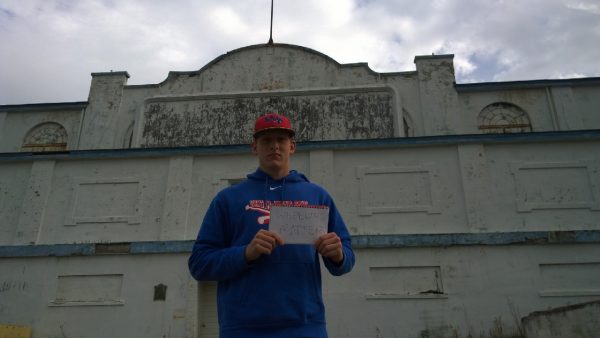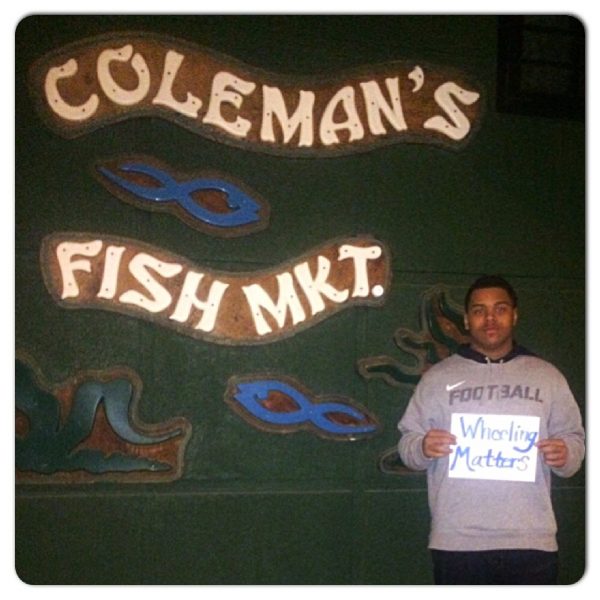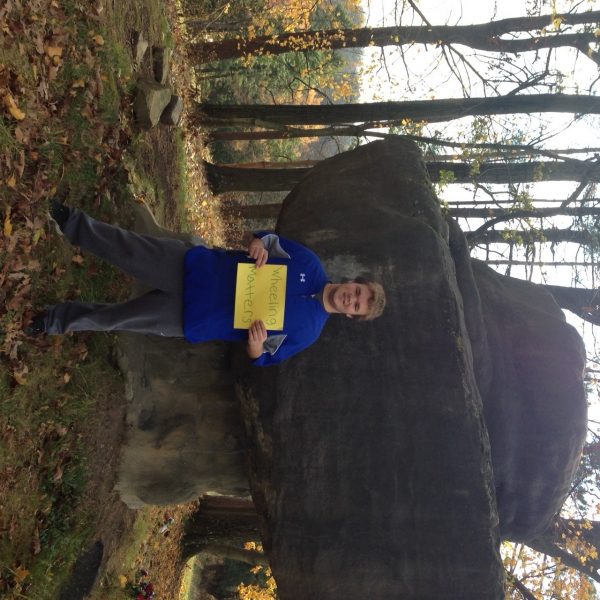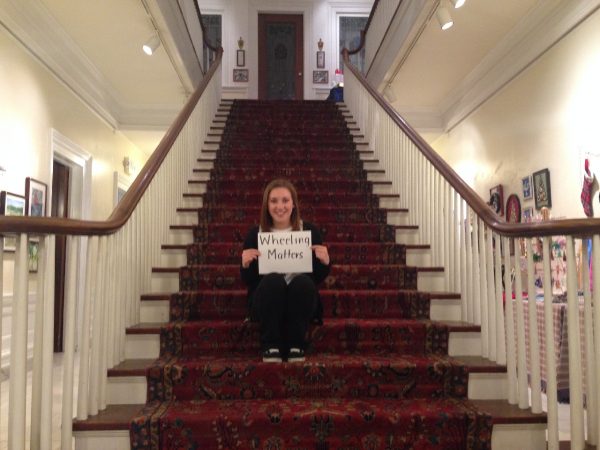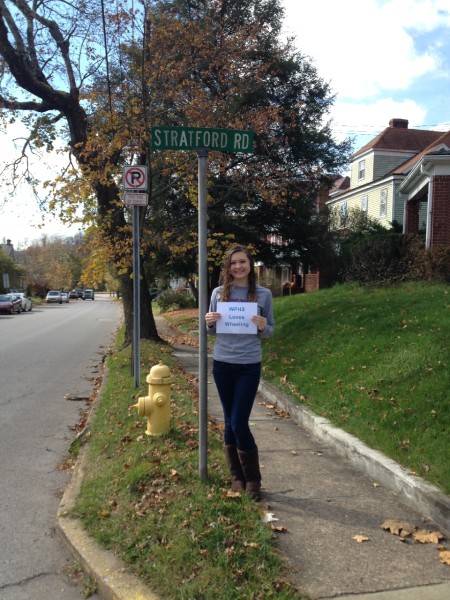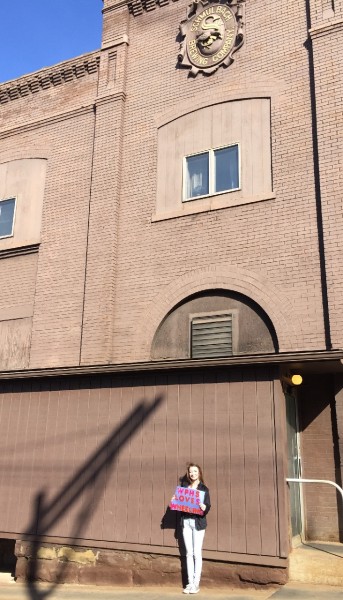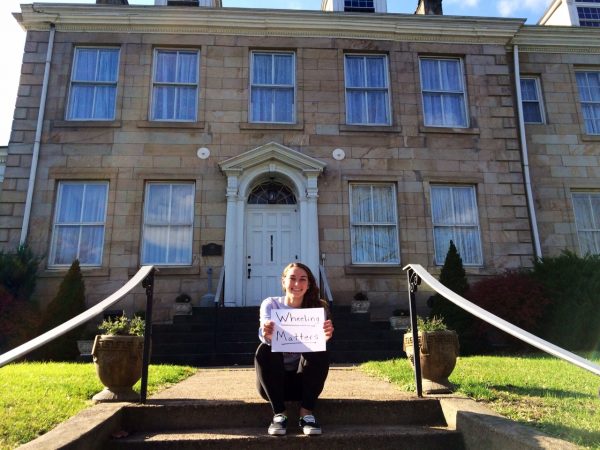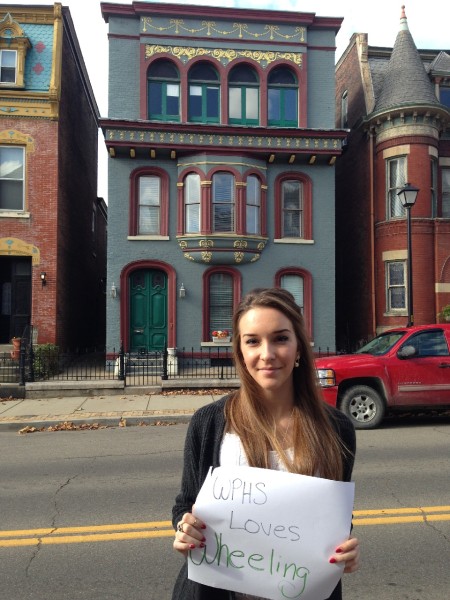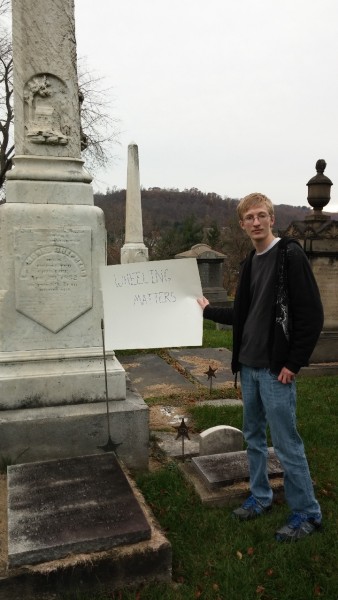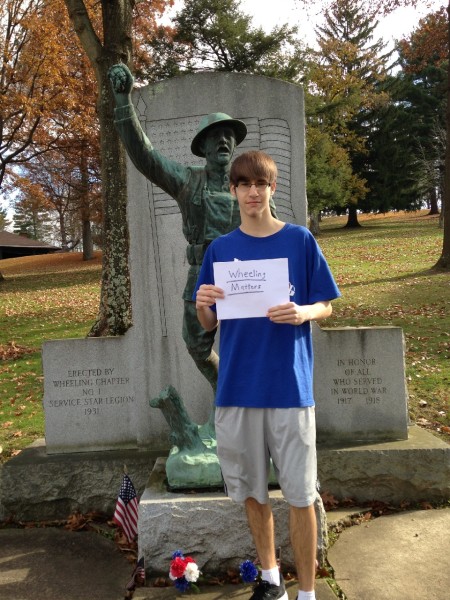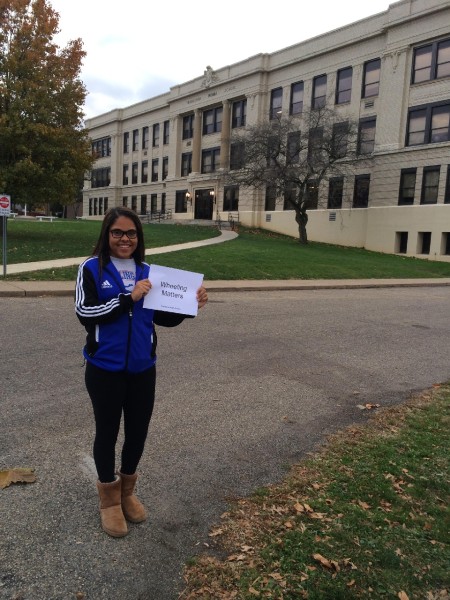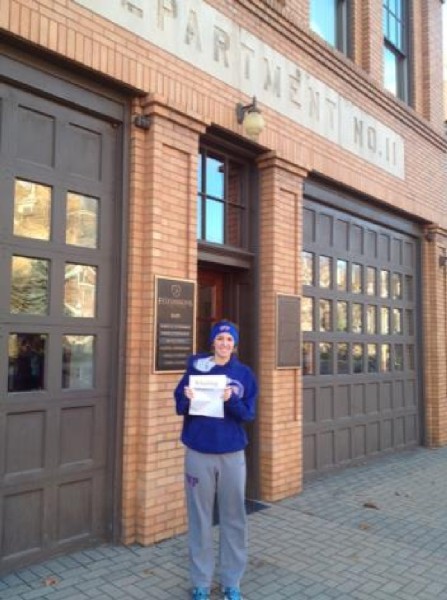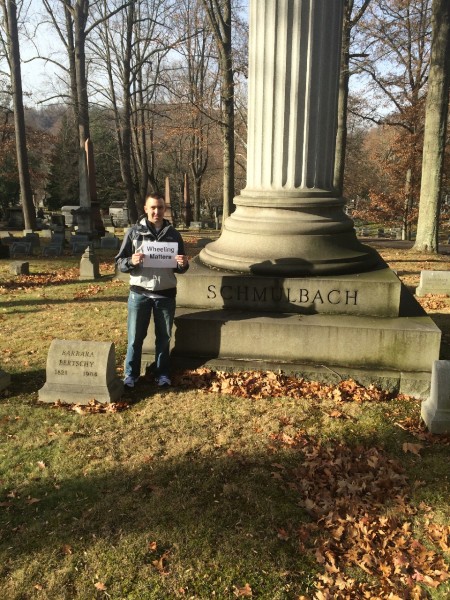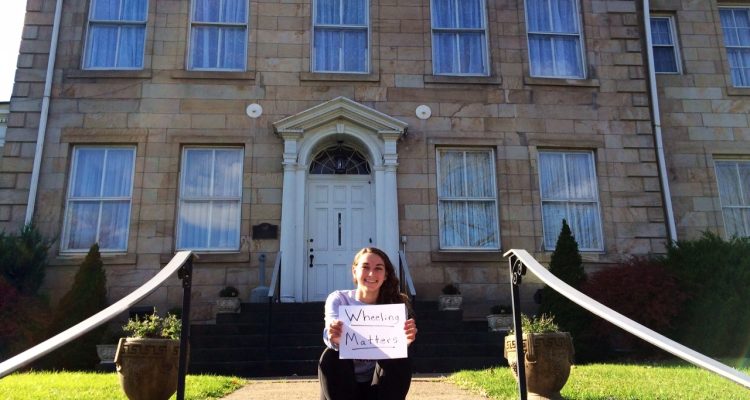By Steve Novotney
Weelunk.com
They get interested, and then they get angry. The best part is that they learn without even realizing it.
Ryan Stanton, a history teacher at Wheeling Park High School, instructs a class titled, “The History of Wheeling, W.Va.” every semester. It is an elective available to the entire student body.
Near the completion of each term, Stanton assigns his students a project he refers to as “Why Wheeling Matters”. The homework requires students to select one historical location within the borders of the Friendly City, take a photograph of it, and explain why it is important to them.
“The hardest thing is to tell a teenager that their hometown is actually a pretty cool place to live in. I tell them that I am not trying to convince them to stay here once they are finished with their education, but I do tell them that they will come back,” Stanton explained. “They may not come back to live, but they will come back to visit Mom and Dad, and when they do come back to visit, they will want something to be here.”
“A lot of the photos that my students took as a part of this project were many of the locations that I showed them in the very beginning of the class,” he said. “On the second day of this class I talk for 50 minutes nonstop, and I display a lot of different places. When I do that, I ask them where it is, and usually no one knows.”
Stanton insists that this does not mean his students are always oblivious to the city in which they live. In fact, he says that with each class, his pupils become more engaged. By the time the “Wheeling Matters” project is assigned, they draw upon lessons learned within the classroom, and then they seek out their own historically significant location.
“I started to realize that every student had their own little interest about an area in Wheeling, and something that they learned about it,” he said. “So I started thinking, ‘What would be pretty easy for them to do that wouldn’t take a lot of time, but would allow then to show the rest of the class what they think is important and what matters in Wheeling?’
“It started with their own interests about why Wheeling is significant in the past,” Stanton said. “They went out and they picked their own locations, and then they chose why it was important to them, and I found out that a lot of the places I showed them in the very beginning were the places they went back to, and that proved to me that they wanted to learn more about their hometown,” Stanton said.
It seems to be working. This year for example, Stanton has noticed an increase of students enrolled in his History of Wheeling classes.
“I think the kids are now starting to find the history of Wheeling interesting and fun to study,” he said. “And they get to learn about where they live, and that it is gradually starting to become sort of cool, and that it’s not that bad a place. All of a sudden, they started to refer to Wheeling as ‘kind of cool’.
“And the other thing about this assignment is making it more than schoolwork. They do have assignments, and they have work they have to do, but they don’t even realize that they are working and learning at the same time.”
During the course of the class, Stanton also introduces his students to historical buildings that no longer stand, like Mount de Chantal Visitation Academy. After he explains the history, he informs them that the structures were razed and explains why.
“The first thing they ask is why it was torn down, and they get mad, too,” he explained. “There are always a few of the students that really get into it, and then they want to know more about what’s going on and how those demolition decisions are made.
“And then I show them Centre Market and how that’s changed, and at that point they usually ask why the same thing isn’t happening yet in our downtown. They get pretty upset, and they get pretty vocal about what’s going on,” Stanton said. “I don’t know what to tell them sometimes, but I always encourage them to pay as much attention to these things as they can.”
Every teacher struggles at times when taking into consideration the level of success that happens in the classroom. For Stanton, his students reveal the lessons they have learned by offering the information to their friends, family members, and teammates.
“My students surprise me every day because there are times when you are not really sure if you are getting through to them, but when they tell me about going on a trip somewhere on a school bus and they tell their friends on the team or in the band the history of something they see, that tells me they are engaged,” Stanton said. “And a lot of the students like to bring in their family stories. They tell us where their grandfather worked or that they have family members buried here and why.”
“Like I said, there are times when, as a teacher, you have no idea if you are getting through, but when they start bringing stories back to class, that tells me something,” he said. “Many of my students, even after they have graduated, have brought something to me that they found in their grandmother’s attic, and they tell me the stories behind it.”
“I had one student who lives in North Wheeling, and one day she told me that when she walks up and down Main Street she now pays attention to all of the markers and plaques on the houses,” Stanton explained. “That’s a success right there, especially since she was someone who just had a hole in her schedule and took the class to fill it. I can remember in the beginning she thought the class was dumb and she didn’t want to be there, but then she told me that’s she’s reading those historical plaques. It’s little things like that, although it may not seem like a lot, that makes it rewarding.”
Stanton’s interest in Wheeling history began when he was inspired by an instructor of his own, Dr. David Javersak, now a retired history professor at West Liberty University. Dr. Javersak revealed to Stanton a piece of history that now serves as one of his passions.
“I took Dr. Javersak’s history class my senior year, and he’s the one who told me the history of Henry Schmulbach, his brewery, and his property,” Stanton recalled. “From that point, I wanted to know even more about it, and that’s when I got involved with more research and then collecting artifacts from his businesses and his life.
“I am also very interested in the Zane family and the impact they had on Wheeling and the surrounding area,” he said. “I know the Zane family traveled this area a good bit and that Zanesville is named after them, but their impact on Wheeling is something not many people realize.”
Will the historical lessons about Wheeling Stanton offers his students convince them to remain or return to their hometown when they encounter the decision for themselves?
Is it assisting the overall effort to retain the best and brightest minds for the future of the Friendly City?
“I think the class will help get them involved, and may even convince some of them to stay here after school,” he said. “I think as the city changes, they will want to be a part of it. And if they do come back, I think they will get more involved because that’s when they will start to notice all of the small businesses that are here doing very unique things.
“I know they are thinking about it, but I really don’t know the real impact yet,” Stanton said. “But I have been surprised about how, when some of the kids who have graduated come back, they tell me how they told their friends that Wheeling is a pretty cool place.”
